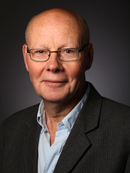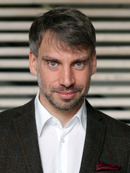Keynotes
All keynotes are accompanied by a workshop. Please see the workshop descriptions.
 |
Michelene (Micki) T.H. Chi (Arizona State University) |
Michelene Chi is the Dorothy Bray Endowed Professor in the Mary Lou Fulton Teachers College at Arizona State University (ASU). Her research focuses on learning, especially for STEM domains. She currently has three strands of work applicable to both pre-college and college-level instruction in STEM. The first strand is a theory of active learning or cognitive engagement called ICAP. The second strand is a theory about emergence causality that explains the robustness of many science misconceptions across domains. The third strand is her exploration of a new paradigm for improving learning from online videos. Dr. Chi’s interdisciplinary work is widely cited and she has received many awards from both education and psychology, including the Sylvia Scribner Award in 2013 and the Distinguished Contributions to Research in Education Award in 2016, both from AERA, and the Thorndike Award from the American Psychological Association in 2015. Dr. Chi was elected to the National Academy of Education in 2010, and also to the oldest and most prestigious honorary societies in 2016 –The American Academy of Arts and Sciences.
 |
Rainer Bromme (Westfälische Wilhelms-Universität Münster) |
Rainer Bromme has been Professor (Educational Psychology) from 1995 to 2016 at the Institute of Psychology, University of Münster, Germany. He was teaching in Bachelor- and Master-programs in Psychology. Now he is appointed as 'Senior Professor' at Münster University, with a focus on research on science communication and he is still involved in PhD programs.
His present research addresses learning in formal and informal learning contexts, especially communication among experts and laypersons, internet use and the Public Understanding of Science.
From 2009 to 2015 he coordinated a German Science Foundation (DFG) funded research program on Science and the Public: The public understanding of conflicting scientific evidence. (http://wissenschaftundoeffentlichkeit.de/en/). At present, he is one of the PI’s within the DFG funded Research Training Group Trust and Communication in a Digitized World (http://www.uni-muenster.de/GK-Vertrauen-Kommunikation/en/index.html) at the University of Münster.
 |
Wolfgang Gaissmaier (University of Konstanz) |
Wolfgang Gaissmaier (*1977), PhD, is a Full Professor of Social Psychology and Decision Sciences at the University of Konstanz, Germany (since 2014). His research investigates how people make decisions under uncertainty and how risks can be communicated more successfully. Previously, he was Chief Research Scientist at the Harding Center for Risk Literacy at the Max Planck Institute for Human Development, Berlin. Wolfgang Gaissmaier’s work has been published in leading psychological and medical journals, including Annals of Internal Medicine, Annual Review of Psychology, Cognition, Health Psychology, JAMA, PNAS, and Psychological Science. His awards include the Otto Hahn Medal for outstanding scientific achievements by the Max Planck Society.

